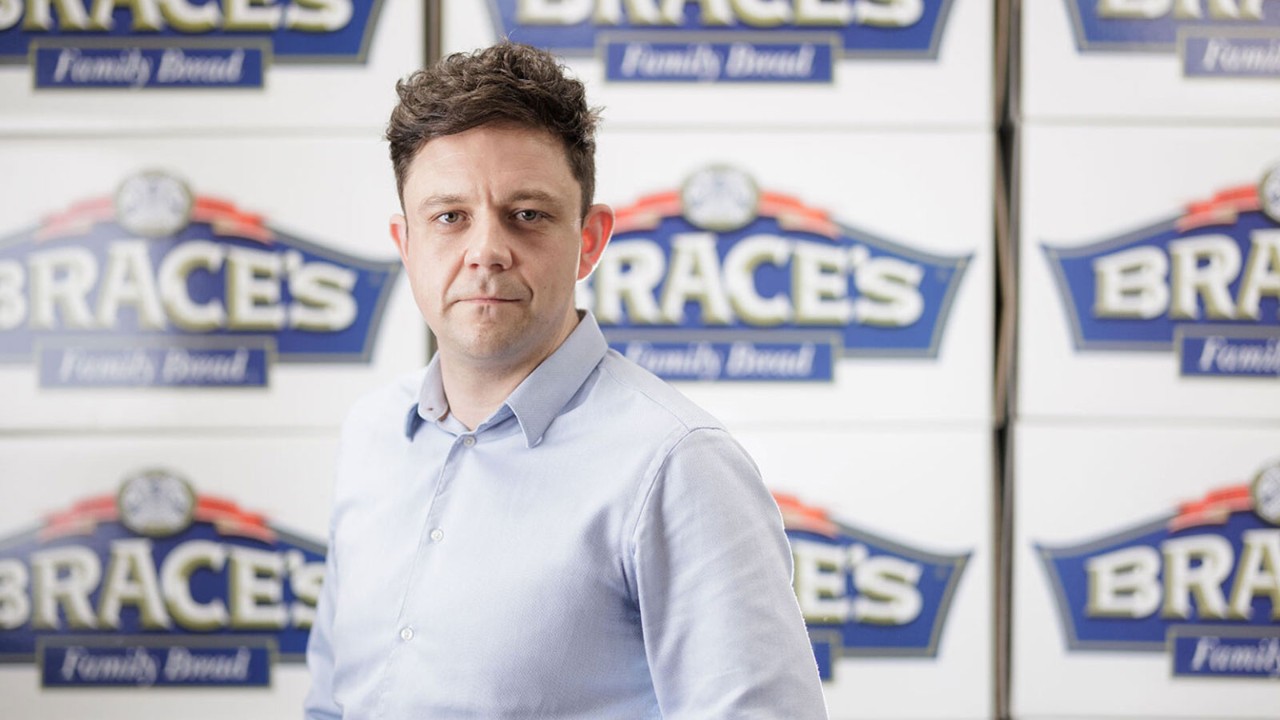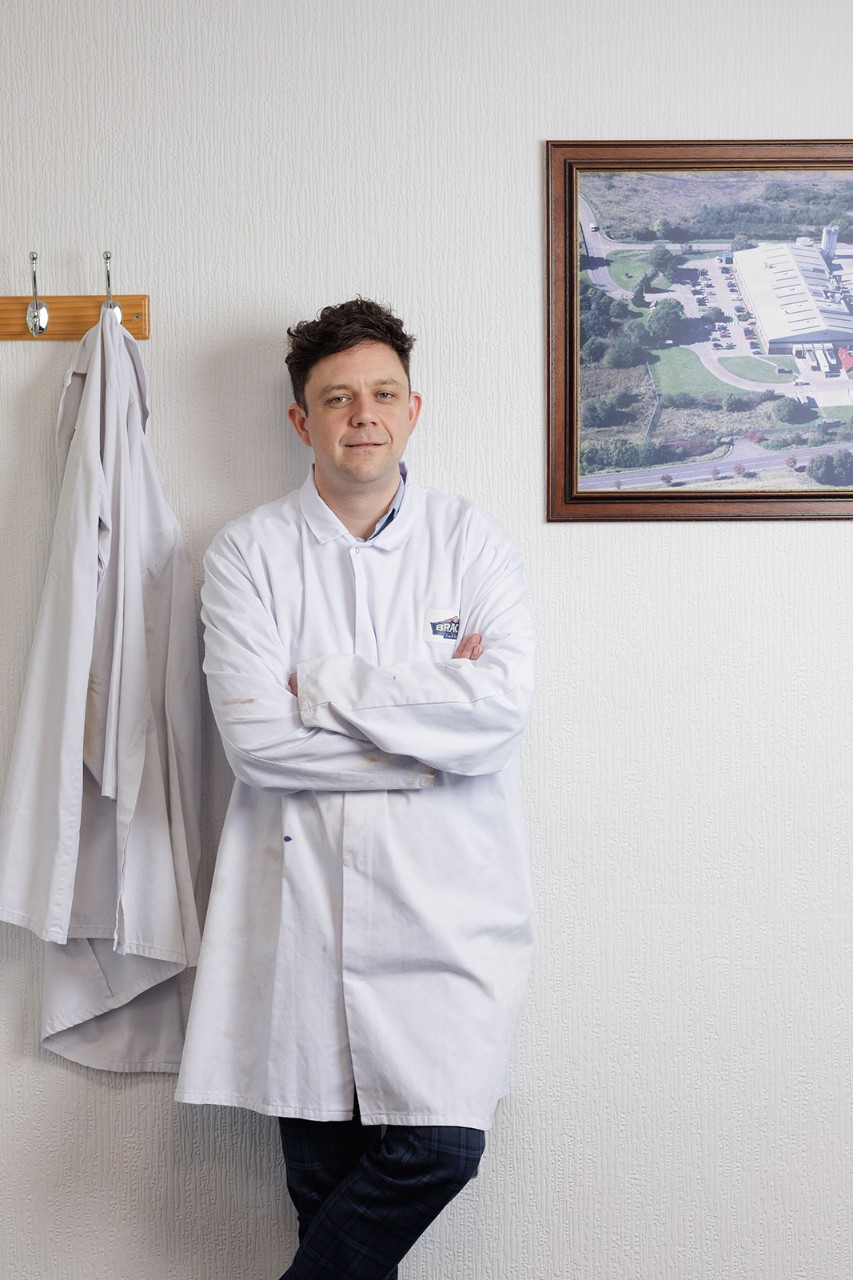
In the past few years – aided in part by the bread-making days of the pandemic – sourdough has firmly elbowed its way onto the nation’s plates, to the extent that smashed avocado on sourdough toast has become a genuine alternative to the great British fry-up. You could even say that sourdough, for some people, has become the best thing since sliced bread. But what does that mean for the businesses that make sliced bread? In short, it’s not good news.
‘As a business we are going through a very challenging time,’ says Leon James FCCA, director of finance at Brace’s Bakery. ‘There has been a massive reduction in the consumption of standard white bread – and the white loaf is our cash cow.’
‘If we put our prices up, customers will very quickly switch’
Brace’s Bakery sliced loaves and bread rolls are a staple of south Wales life. The four-generation family business was set up in 1902 in the mining village of Pontllanfraith by George Brace, and is now run by his great-grandsons, Mark and Jonathan Brace.
Squeezed market
In the late 1980s, this youngest generation of Braces made the step up from a local bakery chain to create a regional bread manufacturer, which produces around 50 million units a year, with turnover of almost £40m.
The past couple of years, though, have seen its market squeezed from both ends by consumer trends and the cost-of-living crisis. Customers interested in a health-conscious diet are switching to sourdough and artisanal bread; at the other end of the spectrum, many who are still buying sliced white are seeking out cheaper options (which generally means supermarket own brands, also known as private label).
Brace’s in numbers
£37.1m
Turnover in the year to 30 September 2023
21.7%
Increase in turnover year-on-year
£1.1m
Profit in year to 30 September 2023
50m
Number of items produced every year
Brace’s dilemma is that it produces high-quality sliced bread and other bakery products, supplying most of the major supermarkets and many convenience stores across south Wales and parts of the south-west of England in a high-volume, low-margin sector.
‘It’s a very price-sensitive market,’ says James. ‘If we put our prices up, customers will very quickly switch to another brand, or a private-label brand, and we immediately lose out on volume. That’s the challenge we’re facing.’
‘It’s becoming too expensive to employ people’

While the company reported a £1.1m profit in the financial year to September 2023, increases in its production costs are squeezing already tight margins. The business was cushioned to some extent by a three-year fixed-price deal from its energy supplier that was negotiated in 2021, but has since had to cope with a significant increase in costs that kicked in late in 2024. The increase in the minimum wage, and now employer’s national insurance (NI), has added to the pressure.
‘Our wage bill is up to £10m a year and the NI increase is going to cost us over £250,000,’ James says. ‘It’s becoming too expensive to employ people.’
Imperative to innovate
But, he adds, there is a plan. The long-term objective is to invest in the Brace’s brand, with private-label production and supplies to the sandwich makers as a supplementary source of income. The challenge for Brace’s is that it lacks the enormous marketing budget that is needed to get a brand lodged into the public consciousness. That other family bakery business, Warburtons (which has turnover of over £700m) may have managed it, but that has taken prime-time TV adverts, Samuel L Jackson, The Muppets and George Clooney.
What Brace’s needs to fund that objective is cash. More cash means more to spend on marketing the brand and supporting that with a wider distribution network. The strategy is two-fold: first, explore different markets and products to boost profitability, and, second, control costs.
‘We are looking for revenue in the private-label and food-service areas’
‘We are a volume-drive business so at the moment we are looking for revenue in the private-label and food-service areas to cover our fixed costs and give us a bit of cash to build up the marketing budget,’ says James. ‘That’s the challenge at the moment: profitability.’
Developing new products is high on the list. In 2022 the company invested £4m in a new production line to produce bread rolls, tea cakes and hot cross buns, which can turn out 16,000 items an hour. It also produces crumpets, scones, fruit loaf and, of course, Welsh cakes.
CV
2023
Director of finance, Brace’s Bakery
2021
Head of finance, Chevler
2014
Various roles, Chevler
Developing a true sourdough product is more challenging. While Brace’s premium ‘Welsh Legends’ range – white, seeded and wholemeal batch loaves with added sourdough – has allowed it to capitalise to some extent from the interest in healthy eating, its 100% sourdough products are still in development, and that will take the best part of a year to hit the shelves.
Another potential source of profit is the food service and sandwich sector, specifically pre-packed sandwiches made for supermarkets, conveniences stores, and airlines and other transport companies. While the pandemic and working from home has hit the pre-packed sandwich market hard – the market was worth around £4.3bn in 2020 and is slowly recovering from a 20% fall in value during the pandemic – it is still an attractive option for bread producers like Brace’s. But it is highly competitive and, as Brace’s has discovered, restrictive in terms of specifications.
‘The food service and sandwich sector need a perfectly square loaf’
‘The margins in the food service and sandwich sector are even tighter, if anything, but these manufacturers also need a perfectly square loaf,’ says James. Even slightly off square and the bread won’t fit into automated production lines. ‘It’s a new market for us and we didn’t have that expertise in house, so we’ve had to learn as we go along.’
Slicing costs
James is also leading a cost-cutting programme that is aiming to trim fixed costs by £2m a year. Most of the company’s costs are fixed; the only significant variable costs are packaging and ingredients.
‘Being a volume business limits what we can do,’ says James, but he believes that there are savings to be found. ‘Just by going through all of our regular contracts, we are starting to find the potential for savings in areas such as IT,’ he says.
Brace’s name has become such an iconic part of South Wales life that the stakes are particularly high. ‘It’s a lot of pressure to get this right,’ he says, ‘but we shouldn’t underestimate how strong the brand is.’
An Instagram-led craze for white toast would help and, given the speed with which trends take hold, isn’t out of the question. ‘In 10 year’s time, we may find that everyone is buying white bread again,’ says James. ‘You never know.’



